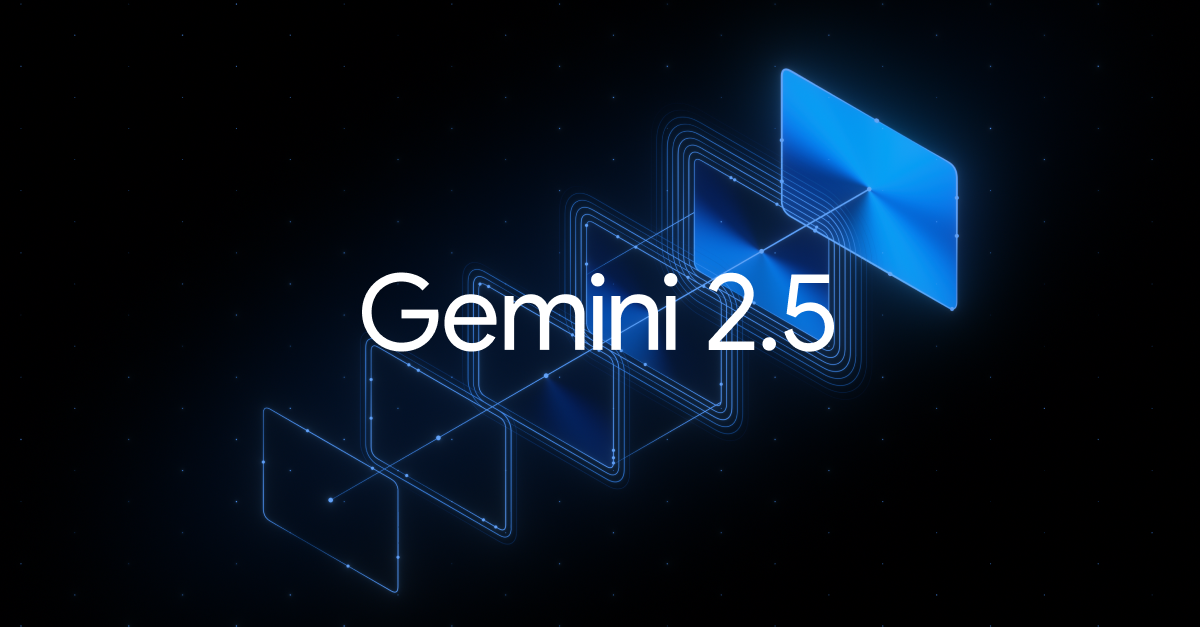Google's Gemini 2.5 Pro: The Most Underrated Enterprise AI Breakthrough of 2025

In a tech landscape dominated by splashy launches and viral demos, the quiet release of Google’s Gemini 2.5 Pro might have slipped under your radar. But for those tracking real-world enterprise use cases of AI, this model could be the most consequential release of 2025.
While OpenAI and Anthropic battle for the flashiest demos, Google has taken a different path with Gemini 2.5 Pro: build the most structured, enterprise-grade reasoning engine on the market. And they might have just pulled it off.
Here’s why Gemini 2.5 Pro deserves your attention.
One of the standout features of Gemini 2.5 Pro is its ability to reason transparently. Unlike many LLMs that produce output in a blur of paragraphs, Gemini 2.5 Pro lays out its logic in structured, numbered steps with sub-bullets. The output feels like the result of an expert walking you through their thought process.
Whether you're asking it to analyze a regulation, refactor code, or explain a strategic decision, the chain of thought (CoT) is not just useful—it's actionable. You can audit it. You can debug it. And you can trust it.
For enterprise teams focused on governance, compliance, and mission-critical decision-making, this is a game-changer. It reduces the “black box” uncertainty surrounding generative models.
With a context window of 1 million tokens and output capacity of 64,000 tokens, Gemini 2.5 Pro isn’t just another large language model—it’s a full document and codebase analyst.
Imagine uploading an entire application repo, multiple policy documents, or several research papers, and asking a model to reason across them. Gemini 2.5 Pro makes that possible, enabling long-form synthesis, uninterrupted conversations, and coherent memory over time.
Even more impressive? A 2 million token context window is already in the works. This puts Gemini at the forefront of long-context applications, surpassing rivals like Claude 3.7 Sonnet.
Gemini 2.5 Pro doesn’t stop at text. It reasons across images, code, flowcharts, and videos—and then uses that reasoning to act.
In practical tests, Gemini 2.5 Pro:
Created SVG diagrams based on unstructured text describing algorithms.
Improved visual outputs after analyzing rendered errors from screenshots.
Understood gameplay recordings and modified game code accordingly.
Analyzed HTML-styled financial data and calculated complex investment scenarios.
This isn’t just recognizing patterns—this is multimodal synthesis at an enterprise level.
For developers, Gemini 2.5 Pro is the most effective coding assistant Google has released. It’s not just about generating functions—it understands architecture.
Case in point: software engineer Simon Willison used the model to implement a new feature across 18 interdependent files in under 45 minutes. The model reasoned through the codebase, planned changes, implemented them, and described its process in clear language.
This capacity makes Gemini a natural fit for:
Enterprise-level agentic frameworks
Code refactoring projects
Multi-repo management
Engineering team acceleration
Its ability to work within a Replit export or Google AI Studio adds practicality to the power.
Where Gemini 2.5 Pro really shines is in its blend of logic and initiative. Give it a goal, a few documents, and some structured prompts, and it begins to resemble not just a chatbot, but a workflow architect.
Ask it to plan a business process, evaluate market trends from PDFs, build dashboards from screenshots, or transform messy semi-structured data into clean analytics pipelines—Gemini handles each with precision, especially when reasoning traces are enabled.
If OpenAI’s GPT is about creativity, Gemini 2.5 Pro is about clarity.
That might make it less “smooth” in casual prose. But when stakes are high and accuracy matters, its verbose but explainable outputs are an asset. It’s built to align with enterprise goals, documentation standards, and regulated workflows.
This aligns with Google’s long-term strengths: structured data, enterprise scale, and reliability. Gemini 2.5 Pro reinforces that foundation with LLM capabilities.
At the time of writing, Gemini 2.5 Pro is available via the Gemini app and Google AI Studio, but not yet fully integrated into Google Cloud’s Vertex AI or made widely accessible via API. However, Google has confirmed that availability on these fronts is coming soon.
Inference costs and latency questions remain, particularly for deep reasoning chains. But early user experience indicates that the value return outweighs these issues for many complex enterprise tasks.
Enterprises looking to unlock the full potential of Gemini 2.5 Pro will need more than just API keys and documentation—they need a new execution model. That’s where Virtual Delivery Centers (VDCs) from AiDOOS come in.
VDCs combine the best of human expertise and AI agent augmentation to:
Build, train, and fine-tune LLM workflows using Gemini 2.5 Pro
Architect AI-first solutions around long-context, multimodal reasoning
Provide governance, auditability, and secure deployment across hybrid infrastructures
Run pilot, production, and enhancement cycles continuously via agile, cloud-native teams
Instead of building large internal teams or over-relying on vendors, enterprises can spin up a VDC on-demand, with AiDOOS managing the right talent, tooling, and timelines. It’s the modern alternative to offshore teams or bloated in-house efforts.
Gemini 2.5 Pro isn’t just another model; it’s a shift in enterprise AI usability. VDCs make that shift actionable.
Gemini 2.5 Pro may not have launched with celebrity avatars or cinematic demos. But it’s the model that enterprises should be watching.
Its blend of transparency, multimodal reasoning, massive context, and structured thinking make it ideal for real-world, high-stakes use cases—from development to compliance, research to transformation.
And when paired with the Virtual Delivery Center model, it becomes more than a smart tool. It becomes the foundation of the next enterprise AI operating system.
Don’t let the lack of buzz fool you. Gemini 2.5 Pro is the quiet revolution that enterprises didn’t know they needed.
Want to implement Gemini 2.5 Pro inside your enterprise without reinventing your org chart?
Talk to AiDOOS about spinning up a Virtual Delivery Center powered by Gemini.